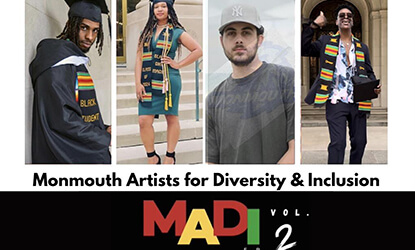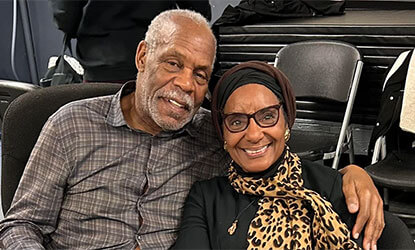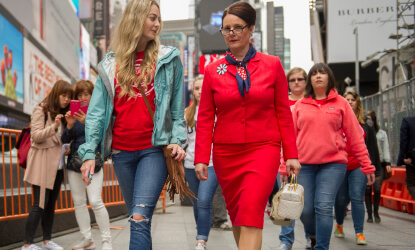The Center for the Arts at Monmouth University has announced its first free live Performing Arts event of 2020 — an exclusive New Jersey presentation of the multi-disciplinary dance work “Black Like Me.”
Scheduled for 8 p.m. inside the Pollak Theatre, the one-night engagement subtitled “An Exploration of the ‘N’-Word” represents the Monmouth debut of Jade Solomon Curtis, a dance artist and choreographer whose integration of classical and black traditions with mixed media and Hip Hop influences “radiates passion and honesty,” in the words of a leading dance critic. Telling five interrelated narratives through words, movement, visuals, and music, Curtis makes a deep and unflinching study of a single word — from its origins as a slur created to belittle an entire people, to the attempts of Hip Hop culture to reclaim, reframe, and reintroduce the “N”-word into casual use.
Many years ago, “Black Like Me” served as the title for a white author’s memoir of his journey through the pre-Civil Rights era South, in the adopted guise of a black man. Here in the charged atmosphere of America 2020, one very talented “beautiful bald black woman” has taken that title for her own; collaborating with leaders in the fields of media design and community activism to produce a work that looks at sweeping themes of generational “heritage,” accepted standards, and social justice, through the perspective of a contemporary black female.
For the Texas-born, Florida-raised artist who first gained acclaim as a member of Donald Byrd’s Seattle-based Spectrum company, and who gained national recognition as the title subject of an Emmy winning documentary short film, “Black Like Me” is rooted both in the centuries-old struggles of black people in American society, as well as such intensely personal experiences as her being branded with the N-word “in white, liberal Seattle.” The founder of the non-profit arts initiative Solo Magic presents her audience with a question — whether it is indeed possible to redefine a word that continues to disrupt the national conversation — and makes a pointedly eloquent case that the N-word is a thing that will forever resist being transformed, co-opted, or normalized.
The presentation of Black Like Me: An Exploration of the “N” Word was made possible by the New England Foundation for the Arts’ National Dance Project, with lead funding from the Doris Duke Charitable Foundation and The Andrew W. Mellon Foundation.
Admission to the February 8 performance of “Black Like Me” is free of charge and open to the public. Registration is recommended but not required, and can be made online at https://www.monmouth.edu/mca/event/black-like-me/.





